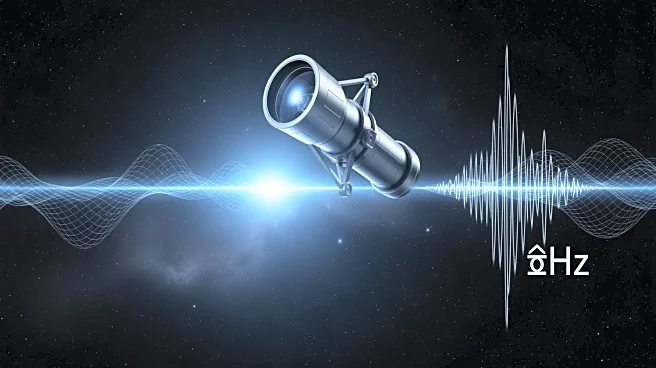What's Happening?
Israel has confirmed that the body of Eliyahu Margalit, a 75-year-old hostage, has been returned from Gaza. Margalit was killed on October 7, and his remains were transferred to the Red Cross in the southern
Gaza Strip. This development comes amid ongoing tensions and a ceasefire agreement between Israel and Hamas. The ceasefire, brokered by the U.S., included the release of Palestinian prisoners and detainees. However, there is frustration in Israel over Hamas's inability to return all hostages' bodies, a situation complicated by the destruction caused by Israeli strikes. The United Nations has described the Gaza Strip as a 'wasteland,' with significant humanitarian challenges ahead.
Why It's Important?
The return of hostages' bodies is a sensitive issue in the Israel-Hamas conflict, impacting diplomatic relations and public sentiment. The inability to retrieve all bodies highlights the challenges in implementing ceasefire agreements and the ongoing humanitarian crisis in Gaza. The U.S. plays a crucial role in mediating these agreements, and the situation tests its diplomatic influence in the region. The humanitarian situation in Gaza, described as dire by the UN, underscores the need for international aid and intervention to stabilize the region and prevent further escalation.
What's Next?
As the ceasefire progresses, further negotiations and actions are expected to address the retrieval of remaining hostages' bodies. The U.S. and other international actors may continue to mediate between Israel and Hamas to ensure compliance with the ceasefire terms. Humanitarian efforts are likely to intensify to address the needs of Gaza's population, with a focus on rebuilding infrastructure and providing essential services. The situation remains fluid, with potential for renewed conflict if agreements are not upheld.
Beyond the Headlines
The ongoing conflict and ceasefire highlight broader issues of international law and human rights, particularly regarding the treatment of hostages and prisoners. The destruction in Gaza raises questions about the proportionality of military actions and the protection of civilians in conflict zones. The situation also reflects the complex geopolitical dynamics in the Middle East, where local conflicts have global implications.








